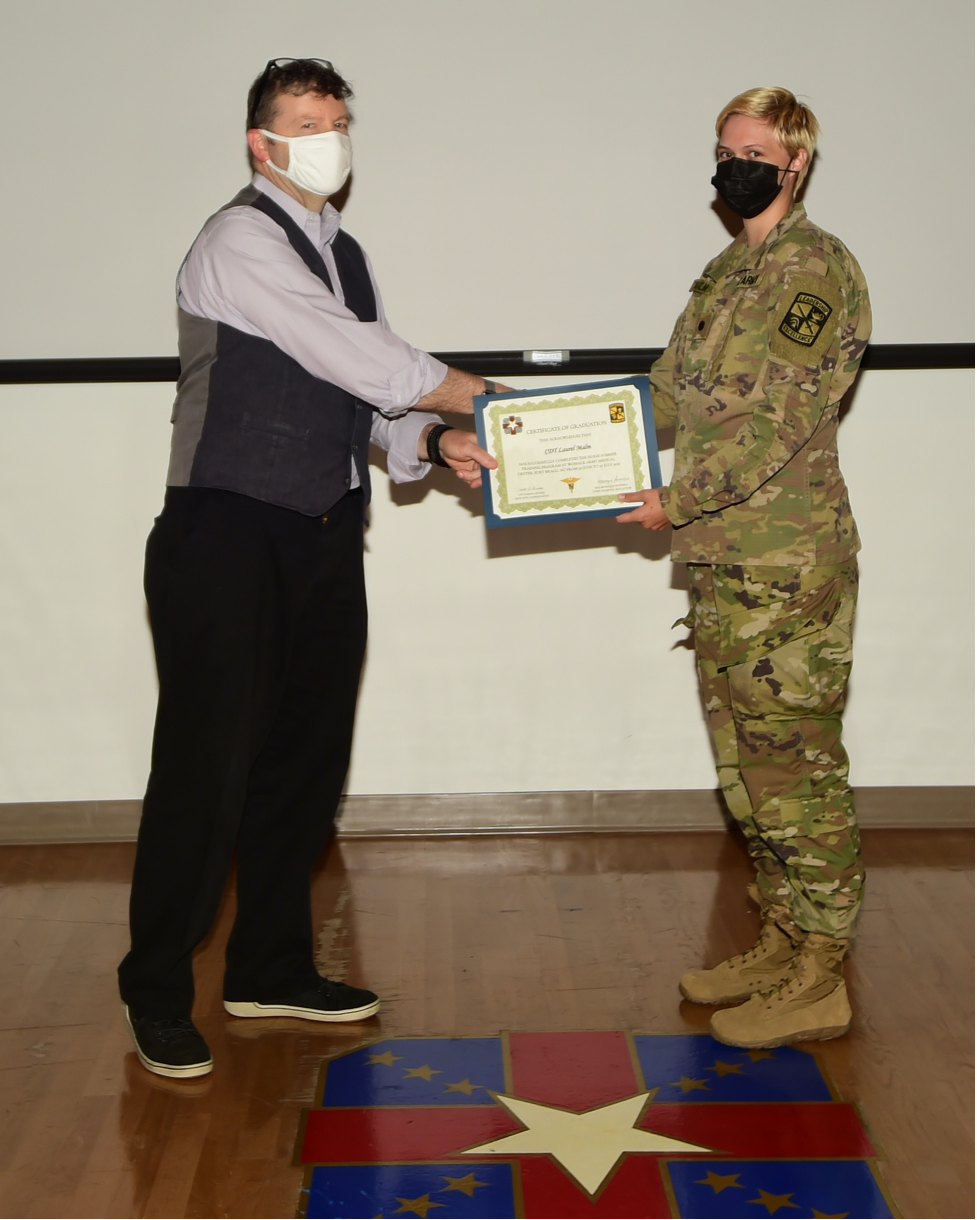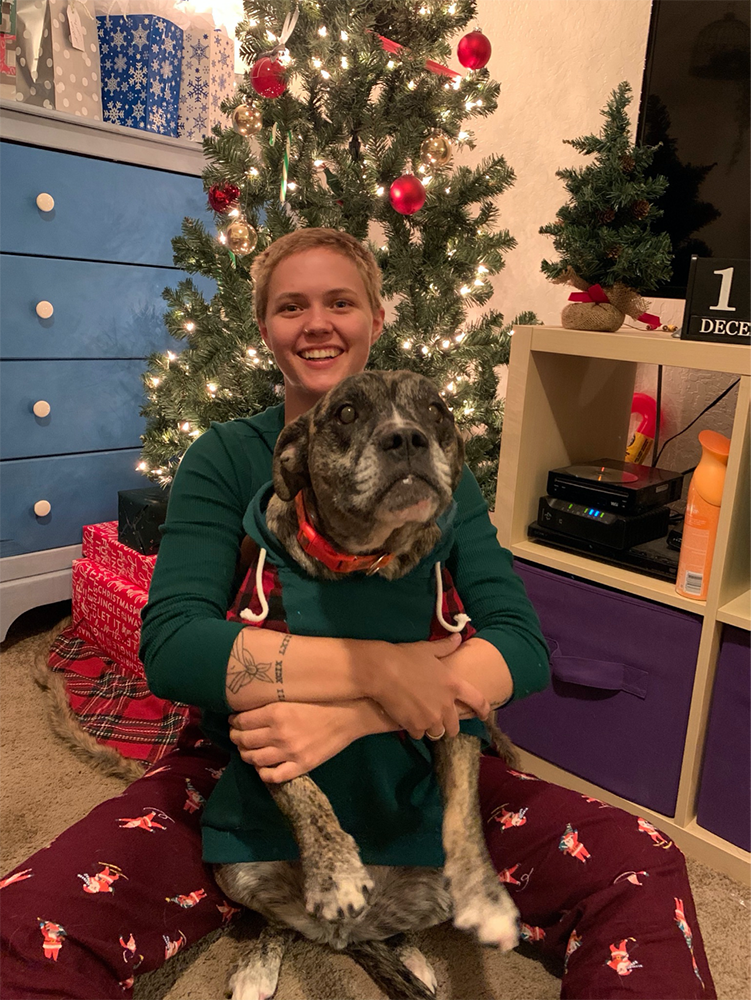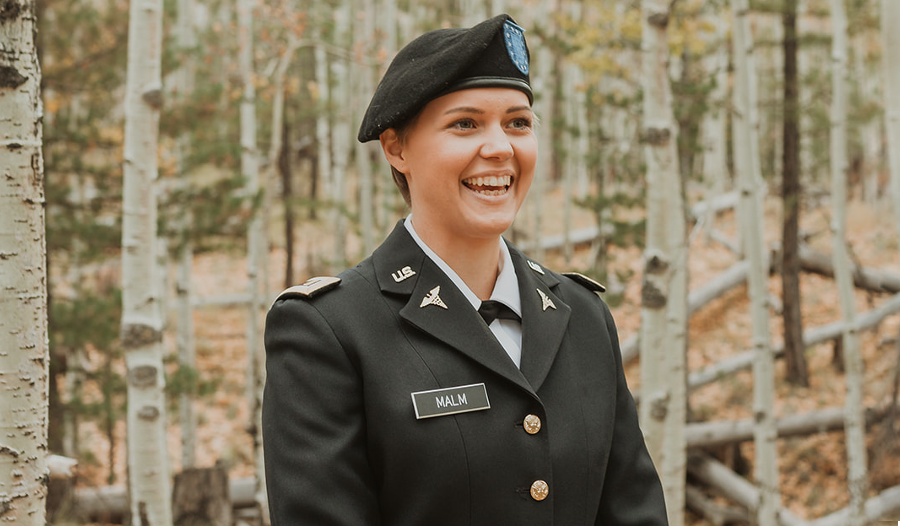When COVID-19 started sweeping through the world at the beginning of 2020, part of Laurel Malm’s life changed in the same way everyone else’s did: Almost overnight, she was doing online classes, wearing a mask to the grocery store and worrying about the future.
But the curveball hit another part of her life much differently. Malm, who graduated last week with a nursing degree from NAU, was working as a patient care technician at Flagstaff Medical Center. When COVID-19 hit, she was on the front lines fighting the deadly, contagious and largely mysterious virus.
“I saw the effects of COVID firsthand—I saw people that were just short of breath and needed some good rest and relaxation, and I saw people fighting to breathe, struggling to eat without having their oxygen levels dip to dangerous levels,” she said. “It was the hardest when I would work a few shifts in a row and I had the same patients, and I could see how much they struggled and how much worse they were from one 12-hour shift to the next. In all honesty, we don’t have many success stories of those that beat COVID and return to functioning level, so when we do, those patients are really special.”

“Working in the pandemic, even with school, has really shown me the true grit and sense of community that health care staff have,” she said. “I honestly believe I would not have kept my job if my coworkers and my managers were not such good humans. They have made this terrible time in health care bearable.”
Malm, who grew up in Gilbert, chose NAU for its affordable tuition; she hadn’t spent much time in Flagstaff besides driving through it on the way to somewhere else. But she found a home here, both at NAU and in Flagstaff. She’s loved it—her favorite aspect of her education was the sense of community among her peers.
“I have made so many friends, from my time in the dorms to ROTC and the nursing program,” she said. “I have so many amazing connections with the professors and my classmates. I truly believe I have made lifelong friends here.”
Part of that included her association with ROTC, which matched well with the sense of caring, hard work, commitment to country—and just a little bit of sibling rivalry.
“My brother enlisted in the United States Army after he graduated high school, and I wanted to one-up him in a sense,” Malm said with a laugh.
She was one of four future Army nurses enrolled in the joint program; LTC James A. Battle, a professor of military science and ROTC instructor, said Malm epitomized what the ROTC program instills in cadets: character, initiative, perseverance and professionalism. She took the initiative to go to his office, introduce herself and immediately set the stage for their working relationship.
“She organized her thoughts, identified her strengths and weaknesses, her vulnerabilities and her concerns on personal issues followed by a plan of action and where she needed assistance,” he said. “Early on, the nursing program was a challenge for Laurel, causing her to second-guess some of her choices, but she quickly adapted and improved her performance within the nursing and the ROTC programs. It just clicked for her.”
The combination of working full-time, going to school full-time and her ROTC responsibilities became too much when she started nursing school,
“Laurel stood out to me as a young, committed, determined future leader with a compassion to help anyone through teaching, mentoring and coaching—a rare attribute to find today,” Battle said.
Dawn Rivas, the interim director and associate clinical professor in the School of Nursing, was involved in Malm’s education from the start. Since Malm was the first student to take part in the joint program, Rivas helped coordinate schedules, worked with the Army nurse adviser at Brooke Army Medical Center who oversaw Malm’s progress and met with Malm monthly to make sure she was able to balance the workload between nursing and ROTC, learning the ropes of the inaugural program by trial and error together. They got to know each other well in those meetings.

Malm, who is preparing to take her nursing license exams as well as getting her Army commission, reflected on her time at NAU. She’s learned so many things in her six years here, she said—to see the beauty all around her, to enjoy the quiet moments walking her dog. ROTC taught her the many ways to be a good leader and helped her find her way, and nursing school taught her not only to be a good nurse but how to manage her time and the importance of being flexible—skills she’ll need in the Army as much as she needed them in a hospital during a once-in-a-century pandemic.
“No one imagined that the pandemic would be as bad as it is,” she said. “I am guilty of that as well, but learning in nursing school and learning in my job has shown me the human kindness that nurses and health care workers have, and I wouldn’t change any of the lessons I have learned or how I learned them.”
Heidi Toth | NAU Communications
(928) 523-8737 | heidi.toth@nau.edu




